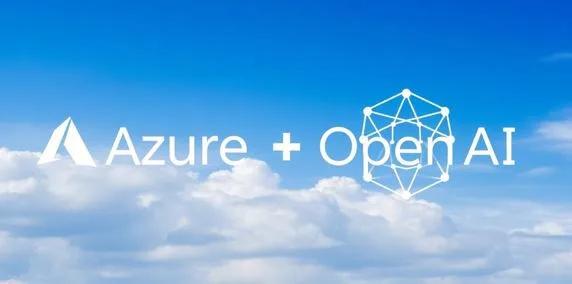How Azure OpenAI Bridges the Gap Between Innovation and Compliance
Strategic Partnership for Enterprise AI
The partnership between Microsoft and OpenAI is a big deal for businesses wanting to use advanced AI. It’s not just about having access to cool AI models; it’s about making them usable and safe for companies. This collaboration means businesses can get their hands on AI tech that used to be only in research labs, but now it’s built for real-world use.
Think of it like this: OpenAI makes the super-smart AI brains, and Microsoft provides the secure, reliable factory and delivery system. This way, companies don’t have to build their own AI factories from scratch. They can just plug into the system and start using the AI for their specific needs. It’s a smart way to bridge the gap between groundbreaking AI research and practical business applications.
Leveraging Azure’s Robust Infrastructure
Microsoft’s Azure cloud platform is the backbone of Azure OpenAI. It’s not just a place to store data; it’s a massive, secure, and scalable environment. This means that when businesses use Azure OpenAI, they’re not just getting AI models, they’re getting them on a platform that can handle a lot of work without breaking a sweat.
This robust infrastructure is key because AI, especially the kind OpenAI develops, needs a lot of computing power. Azure provides that power, along with built-in security features and the ability to grow as a business’s needs change. It’s like having a superhighway for your AI traffic, making sure everything runs smoothly and safely. This makes the Microsoft and OpenAI collaboration a powerful combination.
Access to Cutting-Edge AI Models
One of the biggest draws of Azure OpenAI is direct access to OpenAI’s latest and greatest AI models. We’re talking about models like GPT-4o, which can understand and generate human-like text, and DALL-E 3, which can create images from simple descriptions. These are the same models that are making waves in the tech world.
Having these models available through Azure means businesses can experiment and innovate without massive upfront investment in AI research. They can use these tools to automate tasks, create new content, analyze data, and much more. It’s a way for companies to stay competitive by using the most advanced AI available, all within a controlled and supported environment. This access is a direct benefit of the Microsoft and OpenAI partnership.
Ensuring Security and Data Protection
Data Encryption for Transmission and Rest
When working with AI, keeping your data safe is a big deal. Azure OpenAI makes sure that all the information you send and store is protected. This means your customer details, financial reports, or any private business stuff is locked down tight. It’s like having a super secure vault for your digital assets, whether they’re moving across the internet or sitting on a server. This focus on data encryption is key for building trust and keeping sensitive information out of the wrong hands.
Role-Based Access Control Implementation
Not everyone needs access to everything, right? That’s where role-based access control, or RBAC, comes in. Azure OpenAI lets you set up specific permissions for different people or teams. So, your marketing team might get access to one set of AI tools, while your developers get access to another. This way, you control who can use what resources, preventing accidental data exposure or misuse. It’s a smart way to manage who sees and does what with your AI tools.
Safeguarding Sensitive Business Information
Protecting your company’s secrets and customer data is non-negotiable. Azure OpenAI is built with this in mind, offering robust security features to keep your sensitive business information safe. From encrypting data in transit and at rest to implementing strict access controls, the platform is designed to meet high security standards. This allows businesses to confidently use AI without worrying about exposing confidential details. It’s about using powerful AI tools while maintaining the integrity and privacy of your most important data.
Navigating Compliance Standards
Adherence to Industry Regulations
When businesses bring AI into their operations, they really need to think about the rules. It’s not just about using cool new tech; it’s about making sure that tech plays by the book. Azure OpenAI is built with this in mind, aiming to help companies stick to the various rules out there. This means businesses can get the benefits of AI without accidentally breaking laws or industry standards. It’s a big deal for staying legitimate.
Meeting GDPR and HIPAA Requirements
Data privacy is a huge concern, and rightly so. Regulations like GDPR for Europe and HIPAA for healthcare in the US set strict rules for how personal information is handled. Azure OpenAI is designed to help meet these specific requirements. This means that when you’re using these AI tools, you can feel more confident that you’re not messing up data protection laws. It’s about protecting customer data and avoiding big fines. This focus on compliance is a major plus for any company.
Maintaining Legal and Regulatory Adherence
Staying on the right side of the law is always important, and AI doesn’t change that. Azure OpenAI helps businesses keep up with legal and regulatory demands. This includes everything from data handling to how AI models are used. The platform provides tools and structures that support ongoing legal and regulatory adherence. It’s about building trust with customers and stakeholders by showing that the company is responsible with its AI use. This commitment to compliance is key for long-term success.
Overcoming AI Adoption Challenges
Many businesses see the potential of AI but get stuck when it comes to actually putting it to work. It’s not always straightforward. One big hurdle is the lack of AI expertise. Building and managing AI models takes specialized skills, and not every company has data scientists or machine learning engineers on staff. Hiring or training these people can be expensive and time-consuming, which is a major barrier for many organizations looking to adopt AI.
Then there’s the issue of data privacy and compliance. AI systems often work with sensitive customer and business data. Companies have to make sure they follow strict rules like GDPR and HIPAA. Getting this wrong can lead to big fines and damage trust. Plus, integrating AI into existing systems can be really complicated. If it’s not done right, it can mess up current processes and create new problems, making the whole AI adoption effort more difficult than it needs to be.
Azure OpenAI helps tackle these problems head-on. It offers pre-trained models, so you don’t need to build everything from scratch. This cuts down on the need for deep AI knowledge and speeds up deployment. The platform also comes with strong security and compliance features built-in, making it easier to handle sensitive data responsibly. By integrating with Azure’s cloud, it simplifies the technical side of things, allowing businesses to focus more on using AI to improve their operations rather than getting bogged down in the complexities of AI infrastructure.
Addressing Lack of AI Expertise
Getting AI up and running often hits a wall because companies don’t have the right people. Building AI models from the ground up needs serious technical know-how, like in data science and machine learning. For many businesses, bringing in this kind of talent is tough and costly. Azure OpenAI helps here by providing ready-to-use models. This means you can start using advanced AI without needing a whole team of specialists to build it all for you. It’s a way to get the benefits of AI without the massive upfront investment in specialized staff.
Mitigating Data Privacy Concerns
Handling data is a big deal when using AI. Companies must be super careful with customer information and follow rules like GDPR and HIPAA. Azure OpenAI is built with enterprise-grade security and compliance in mind. It includes features like data encryption and secure storage, which are key for protecting sensitive business information. This makes it easier for organizations to use AI confidently, knowing they are working within regulatory boundaries and keeping data safe. It’s about making sure that AI adoption doesn’t come at the expense of privacy.
Simplifying Integration Complexity
Making AI work with what a company already has can be a headache. Existing systems and workflows might not play nicely with new AI tools. This integration can be tricky and require a lot of technical work. Azure OpenAI aims to make this smoother. By connecting with Microsoft Azure’s cloud infrastructure, it’s designed to fit into existing business setups more easily. This means less disruption to daily operations and a quicker path to seeing real value from AI. The goal is to reduce the technical friction so businesses can adopt AI without major operational headaches.
Key Differentiators of Azure OpenAI
Enterprise Integration vs. Public Tools
Azure OpenAI stands apart by focusing on business integration. Unlike public tools that might be for general use or experimentation, Azure OpenAI is built for enterprise environments. This means it connects with existing business systems and workflows. It’s about making AI work within your company’s structure, not just as a standalone feature. This focus on integration is a big deal for companies looking to adopt AI without a complete overhaul.
Controlled Environment and Data Security
When you use Azure OpenAI, you’re working within a controlled environment. Microsoft’s Azure cloud provides a secure foundation. Data submitted through Azure OpenAI is handled with care, including encryption for data both in transit and at rest. This is a significant difference from some public AI tools where data usage policies might be less clear. The commitment to data security is a primary reason businesses choose Azure OpenAI.
Enterprise-Only Access and Support
Access to Azure OpenAI is typically limited to enterprise customers. This isn’t just about exclusivity; it means the service is tailored for business needs. It comes with enterprise-level support and service level agreements (SLAs), which are vital for mission-critical applications. Public tools often lack this dedicated support structure. This enterprise focus means businesses get the reliability and backing they need to deploy AI confidently.
Enhancing Business Operations with AI
Automating Customer Service Functions
Businesses are using Azure OpenAI to build smarter chatbots. These bots can handle customer questions all day, every day. They give quick answers and make customers feel understood. This means faster help for customers and lower costs for companies. It’s a win-win for customer service.
Streamlining Code Development Processes
For those building software, Azure OpenAI helps a lot. It can write code for you, find mistakes, and make your code better. This speeds up how fast you can build things. Developers can spend less time on small tasks and more time on the big picture. It really helps teams get more done.
Improving Documentation with Speech-to-Text
Getting information from spoken words into written text is easier now. Azure OpenAI can take audio and turn it into written documents. This is great for meetings or interviews. It saves time on typing and makes sure you don’t miss important details. This makes working with information much smoother.
AI is changing how businesses work. It helps with customer service, making software, and handling information. Using tools like Azure OpenAI makes these changes easier to manage.
- AI helps businesses work faster.
- It makes customer interactions better.
- Developers can build software more efficiently.
Many companies are finding that AI is not just a nice-to-have anymore. It’s becoming a key part of how they operate. The ability to automate tasks and get insights from data is a big deal. This helps businesses stay competitive.
Responsible AI Practices
Bias Mitigation in AI Models
When using AI, it’s important to think about fairness. AI models learn from data, and if that data has biases, the AI can end up showing those same biases. Azure OpenAI has tools to help spot and reduce these issues. This means the AI is more likely to be fair to everyone, no matter their background. It’s about making sure the AI works for all users, not just a select group. We need to keep an eye on this to make sure our AI systems are good.
Ensuring Transparency in AI Usage
People need to know when they are interacting with AI and how it’s making decisions. Transparency builds trust. Azure OpenAI helps with this by giving businesses ways to explain how their AI works. This is especially important when AI is used for big decisions or customer service. Being open about AI use helps everyone understand its role and limitations. It’s a key part of using AI responsibly.
Protecting Data Privacy During Processing
Keeping data safe is a big deal, especially with AI. Azure OpenAI is built with security in mind, using strong encryption to protect information. This means that even when data is being used to train or run AI models, it stays private and secure. Following rules like GDPR and HIPAA is also part of this. It’s about making sure customer information is handled with care and respect. This commitment to data privacy is a core part of responsible AI practices.
Bringing Innovation and Responsibility Together
So, what does all this mean for businesses looking to use AI? Azure OpenAI really seems to be the way to go if you want the latest AI tech but also need to keep things secure and follow the rules. It’s built on Microsoft’s big cloud system, which means it’s got security and privacy baked in from the start. This partnership lets companies use powerful AI tools, like those for customer service or writing code, without having to build everything themselves or worry too much about data protection. It’s about making advanced AI accessible while still being responsible, which is a pretty big deal for a lot of companies out there.




